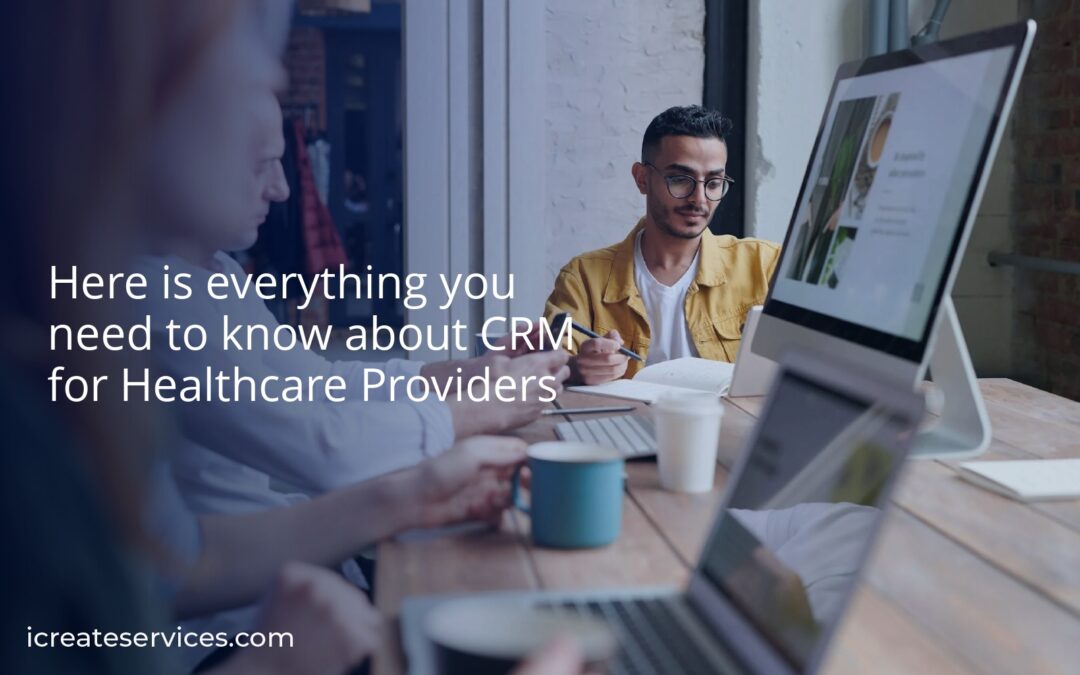What is a CRM?
CRM (Customer Relationship Management) is a broad area of business management that involves successful ways of interacting and engaging with customers. Traditionally, CRM software and tools make use of large amounts of data to analyze the existing customer base, their requirements, and needs. In return, the software provides the business with valuable insights on how to best cater to the needs of the customers.
CRM in Healthcare
CRM in healthcare has become a very vital topic of discussion.
A healthcare organization is huge with multiple departments and lots of operational processes. Amidst all this, keeping all the stakeholders happy is very important too. Here is where CRM comes to help. CRM in the healthcare industry is also called Medical CRM.
What should CRM do in simple terms? It should retain the existing customers (patients) and attract new customers. Just like any other business, a healthcare organization needs customers to survive and that’s why CRM is a very vital part of organizational growth.
Here are some of the features of any good CRM.
Patient Management
One of the main tasks of a good CRM is patient management. What does this include? Everything starting from handling appointments, reminding the patient about future appointments, helping with registration, handling rescheduling, and providing prescriptions and medical bills come under this category.
This is the single most important feature of any CRM software that will make customers happy and satisfied.
Sapio Sciences is one such CRM and healthcare service provider that is doing great with patient management. Apart from all the traditional patient management services offered by this tool, you can also look forward to the below features that are unique and very useful for small and big healthcare providers.
- Delivering personalized and customized content to the target population
- Automated lead assignment
- Options for self-registering in the healthcare provider’s portal
- End to end patient management from registration to report delivery
Contact centre management
How effectively does a healthcare provider handle queries and grievances from patients? Call handling is something that either brings customers closer or pushes them away. A good CRM software offers scripted automated voice schedules that can assist customers when needed. This also brings down the load of actual call centre employees who may be wasting time giving up the same responses multiple times a day.
Client Services Management
Want to know how the best software solutions handle client service management? Look for the below features in your CRM tool. Apart from customer service for regular healthcare providers, your CRM tool should also handle client services like a pro. Assume you are a third-part laboratory offering a host of services for hospitals and clinics. With a worthy CRM tool, processes like creating new records, accepting and processing orders, the status of a report, and actual report delivery all become seamless, automated, and trackable.
As a result, healthcare providers and physicians are going to choose you over other competitors and this will help build your brand identity.
Marketing and sales force automation
Another part of healthcare CRM that directly affects the growth and expansion of the healthcare provider is its ability to automate marketing. Here are few features of marketing and sales force automation that you should look for in any tool you invest in.
- Ability to send automated marketing messages and emails to the target audience
- The ability to identify how many customers/leads interacted with these messages and emails you sent
- Connecting leads with the right sales representative
- Identifying target leads and encouraging them towards closing a deal
Data Analysis
All CRM tools can collect loads of vital data every single day about new and existing customers. The difference between a good and a mediocre CRM tool lies in how the data is analyzed.
Using customer data, a CRM tool can generate very important reports via the Salesforce health cloud that can change business strategies.
- Segmenting patients based on health conditions
- Identifying patients who need constant care and follow-ups
- Gaining in-depth knowledge on a patient’s health progress to proactively diagnose and treat conditions
- Regular monitoring of health reports
All these not only help the healthcare provider connect with the customers better, but it also ensures patients get detailed and well-thought-out treatment plans that keep them healthy and at peace.
Conclusion
Healthcare CRM is a division of Customer Relationship Management that is going to be the anchor point for all healthcare companies to hold on to if they want to grow. If you are a part of any healthcare organization, small or big, it is time to think seriously about Customer Relationship Management in your healthcare sector.
When you treat your patients like valued customers who deserve nothing but the best, your brand value and your recognition will grow gradually. For healthcare brands that want to make a mark in the industry and survive for long, CRM is the way to go.
- Demystifying Fuel Test Procedures and Standards - January 16, 2025
- The Benefits of SAP Invoice Management in Financial Processes - December 4, 2024
- Enterprise Software for Comprehensive Risk Management - July 29, 2024




